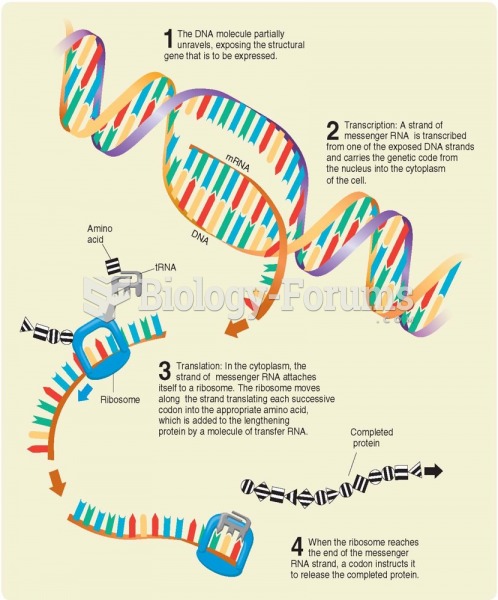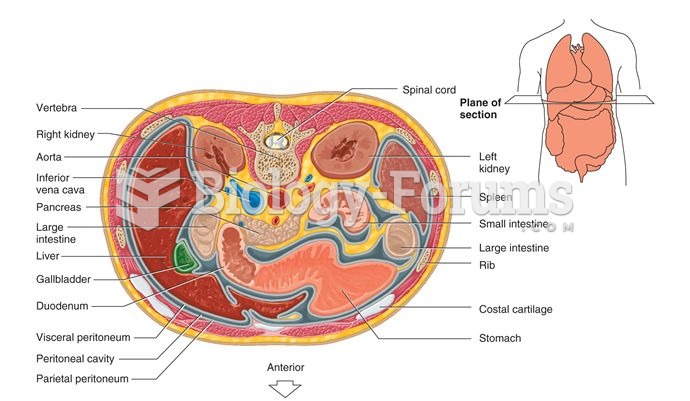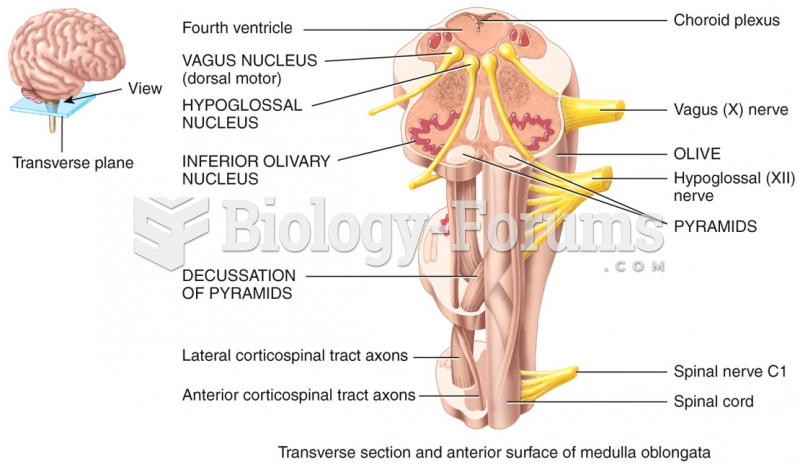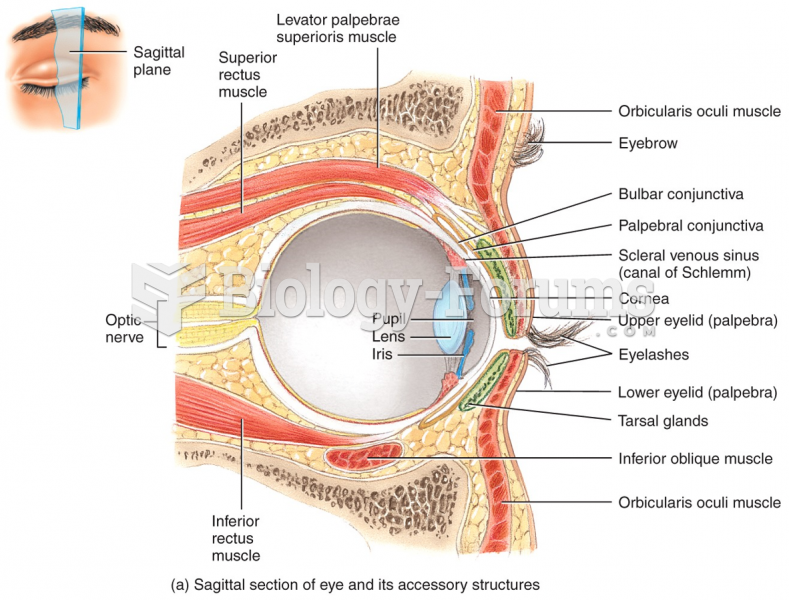|
|
|
By definition, when a medication is administered intravenously, its bioavailability is 100%.
The FDA recognizes 118 routes of administration.
The first oral chemotherapy drug for colon cancer was approved by FDA in 2001.
Only one in 10 cancer deaths is caused by the primary tumor. The vast majority of cancer mortality is caused by cells breaking away from the main tumor and metastasizing to other parts of the body, such as the brain, bones, or liver.
Your skin wrinkles if you stay in the bathtub a long time because the outermost layer of skin (which consists of dead keratin) swells when it absorbs water. It is tightly attached to the skin below it, so it compensates for the increased area by wrinkling. This happens to the hands and feet because they have the thickest layer of dead keratin cells.
 Adults in the middle-aged group (37–42 years) score higher on measures of generativity than either ...
Adults in the middle-aged group (37–42 years) score higher on measures of generativity than either ...
 Gene expression. Transcription of a section of DNA into a complementary strand of messenger RNA is ...
Gene expression. Transcription of a section of DNA into a complementary strand of messenger RNA is ...





